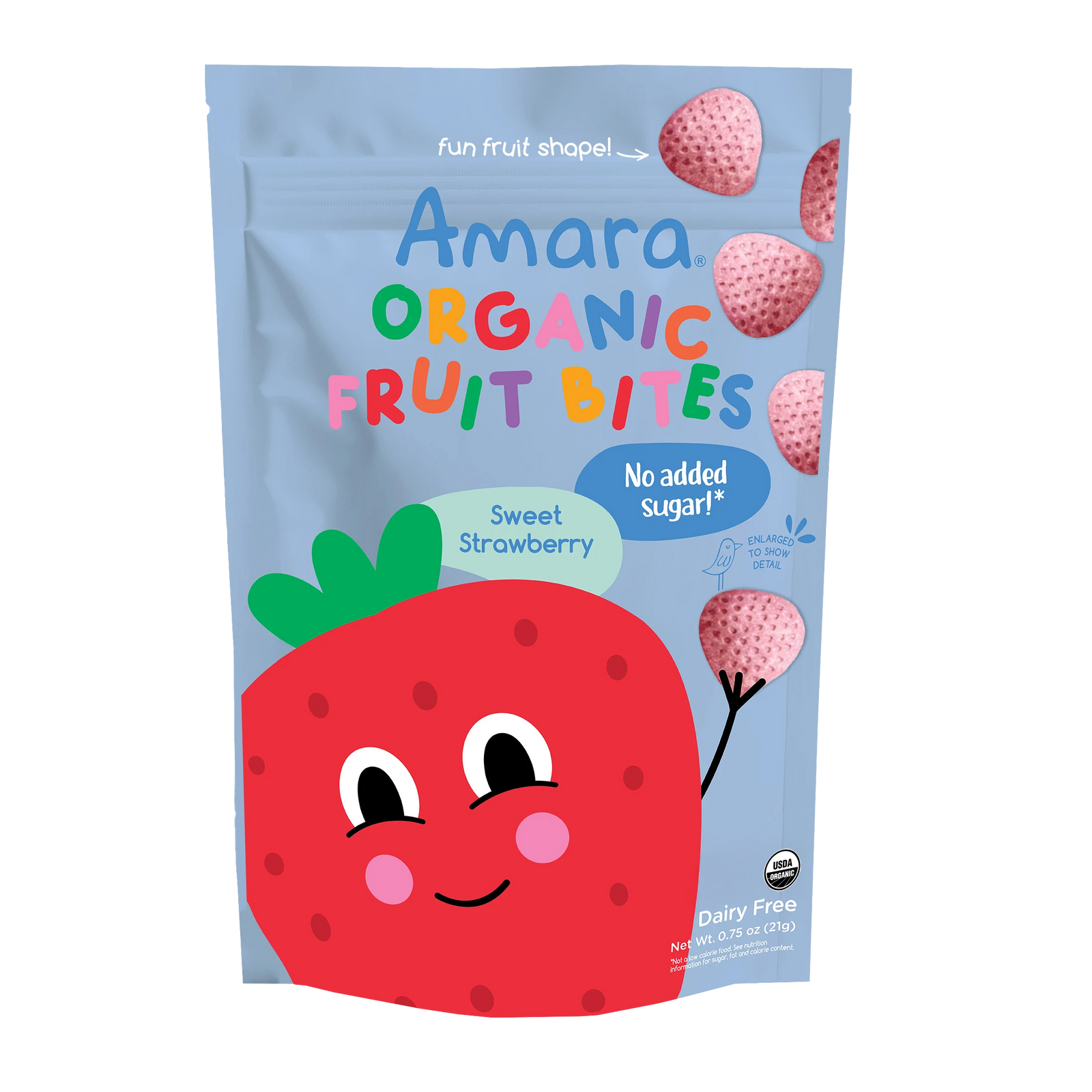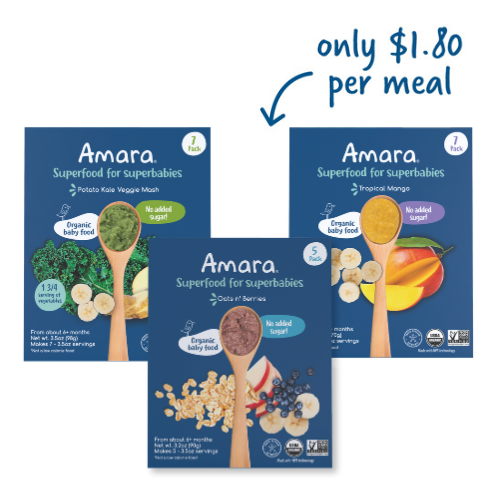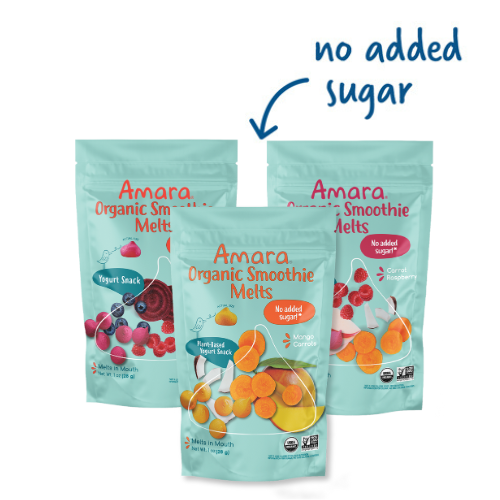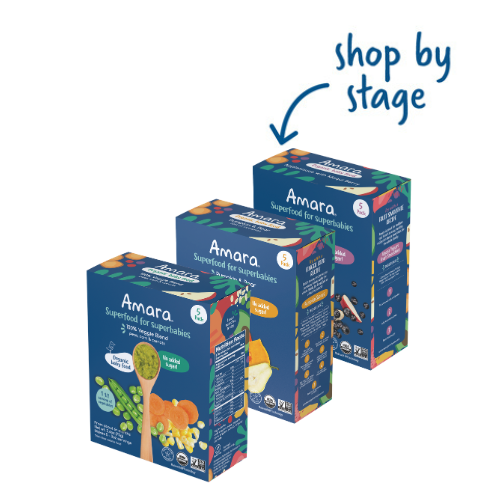
Did you know that when you and your baby dance, sing, and play around with music, at least eight areas of their brain are activated at the same time? Wow!
During the first three years of a baby’s life, their little bodies grow at a remarkable rate. Just one example: their brains form new connections with each new experience—700 new connections per second in the first year alone!
Us parents want to encourage this phenomenal brain development—plus other growth—as best as possible. And among many other positive learning experiences, music is very helpful for this. It uses so much of the brain and body that it supports growth for many areas of our children’s physical and emotional wellbeing.
And on top of that? It’s an amazing bonding experience with our children.
So, today we give you some benefits of music for babies, followed by some tips on how to introduce it to your little one.

Why It’s Beneficial to Introduce Music to Your Babies:
- Music can support your baby’s brain development.
- Listening to music with our children encourages their speech and language acquisition (and later reading) skills because the ability to perceive music precedes the ability to notice and understand words. (One study from the Institute of Learning and Brain Sciences saw that after babies listen to music, their auditory and prefrontal cortexes—regions in charge of processing speech—actually looked different!) When children listen to music, repeat it, or make up their own, they’re learning to repeat words, which encourages them to use and eventually understand these words.
- And because music is an opportunity to study and practice patterns, beats, sequences, and counting, it can improve a small child’s cognitive skills, especially symbolic thinking and spatial intelligence (which are very helpful for later mathematical learning).
- Music also assists with our babies’ socialization and emotional intelligence. Music helps us connect with one another by impacting brain circuits involved in cooperation, empathy, and trust. By listening to music from a young age, children pick up on moods and emotions within songs—and later learn to apply that skill to life, comprehending people’s words and the emotions imbedded in them.
- Listening to and playing music also boosts concentration skills and memory power in our little ones. A 2006 study* showed that babies as young as 8 months could recognize a familiar piece of music even if it had been two weeks since the baby last heard it.
*Llari and Polka, 2006.
- Playing music promotes fine and gross motor development in babies.
- When our little ones bang on an object, grip something, or squeeze an item to get a sound out of it, they’re developing their arm, hand, and finger muscles and enhancing their fine motor skills, all of which they’ll use when they write and draw later in life. And when they’re dancing and moving to music, they’re building muscles in their arms, legs, and trunk. Dancing also promotes balance in babies, plus bilateral coordination (using both sides of the body together) and general body awareness.
- And because listening to and playing music fires up numerous parts of the brain used for speech/language, math, communication, and creativity, it develops a strong connection between the right and left sides of the brain, allowing messages to get across faster and more effectively.
- Music produces positive changes in the brain, helping children feel happy and less stressed and thus better equipped to self-soothe.
- Listening to and playing music releases endorphins, contributing to a feeling of happiness and confidence. This is true for adults—and our children.
- Beyond this, when babies listen to a familiar song, it is therapeutic. It slows down their heartbeats and allows for calmer and deeper breathing. This not only promotes happier and calmer babies during the daytime but also at night, helping them sleep more soundly.
- Listening to and playing music with your child also provides a wonderful opportunity to bond, building a stronger sense of attachment between you two.
And on top of all this, these benefits can start very early. While pregnant, listening to music can not only calm and uplift you (the mom) but also your unborn baby. Babies can hear sounds as early as 16-18 weeks. By and after 24 weeks, babies’ ears develop rapidly, and as such, babies have been shown to turn their heads in response to noise—like music!—in the final months of pregnancy.

What Can You Do to Introduce Music at Home?
Some general recommendations:
1. Expose your little one to music as soon as possible.
That way, those amazing benefits (^^) can start as soon as possible.
Be aware that studies show babies from an early age (5 months according to a 2008 study*) can tell the difference between happy and sad music in the same way they can distinguish between happy and sad faces. Research has also shown that babies prefer harmonic and consonant music to dissonant sounds.
*Flom, Gentile, and Pick, 2008.
2. Sing to your baby.
This not only encourages the physical, mental, and emotional benefits of music but bonds your baby to your voice.
3. Encourage your little one to make their own music.
For this, you don’t have to buy an instrument. Just use household objects that allow your baby to practice their music-making—pots, pans, wooden spoons, bowls ….
If you want to buy an instrument for your child, consider a toy drum, shakers or rattles, maracas, or a xylophone.
You might think you can only play Mozart and kids’ lullabies—but any type of (kid-friendly/appropriate) music works!
Oldies, Taylor Swift, electronic—just play music that you like, which will encourage you to share it with your child.
4. Keep the volume in check.
Babies’ ears are very sensitive because their ear canals are smaller than ours. This means they’re more susceptible to hearing damage. A good rule is: you should be able to talk over the music. Otherwise, it’s too loud for your baby.
Specific age-based recommendations, courtesy of Zero to Three and What To Expect:

For babies 12 months and younger:
-Play lullabies, especially at difficult moments (like getting them ready for a nap/bedtime or before drop-off at daycare).
-Hold them while you sing to them. Dance around with them in your arms. Place them on the floor and move their arms and legs to music.
-Play simple, repetitive songs (“Wheels on the Bus Go ‘Round and ‘Round”) that can help them learn to recognize words.
-Provide musical toys and later simple “musical instruments”—like dry beans in a bottle—that they can easily shake. (You’ll need to show them how to do this: shake the rattle and show them how to shake one in return).
For babies 12 to 24 months old:
-Play songs that encourage muscle growth and body awareness/knowledge (both fun dance songs and songs like “Hokey Pokey” that call out certain body parts).
-Play interactive songs that ask the toddler to perform an activity (“Clean Up Time”).
-Play music and dance with your toddler, then pause suddenly, encouraging them to freeze, too. It’s fun—and helps your little one learn about body control and self-regulation.
-Offer toys (dolls, stuffed animals, etc.) during music time, giving toddlers an opportunity to sing to and otherwise involve these “friends.”
-Play music, especially songs that are simple or repetitive, and pause every now and then, getting your toddler to fill in the “______” of what’s coming.
-Offer DIY musical instruments or simple “real” ones like a toy drum or maracas.
-Encourage your toddler to dance around and listen to music with other toddlers.
For babies 24 to 36 months old:
-Encourage your toddler to make their own music—singing, playing an instrument—and ask them to tell you about it. Is it happy music? Sad? Why?
-Host a dance/music party with your toddlers’ friends.
-Make up a dance routine with your child, helping them learn sequences in movement.
-Fast dance to a fast-paced song with them, and then slow dance to a slow-paced song, helping them learn the difference.
-Sing songs that have stories embedded in them.
-Don't forget the snacks! Try some exciting snacks that won't give your little one a sugar crash. We recommend our best-selling Yogurt Smoothie melts. They are bright (with no artificial colors) and sweet (with no added sugars), and everyone LOVES them!

We at Amara support things like ‘introducing your baby to music’ because we care about babies’ health and development. That’s why we’re in the business of nutrient-dense baby and toddler food. Amara’s baby blends and toddler snacks have no additives, are 100% non-GMO and organic, and are made from only a few—very real, very transparent—ingredients.
Any (musical) tips to share?








Leave A Comment